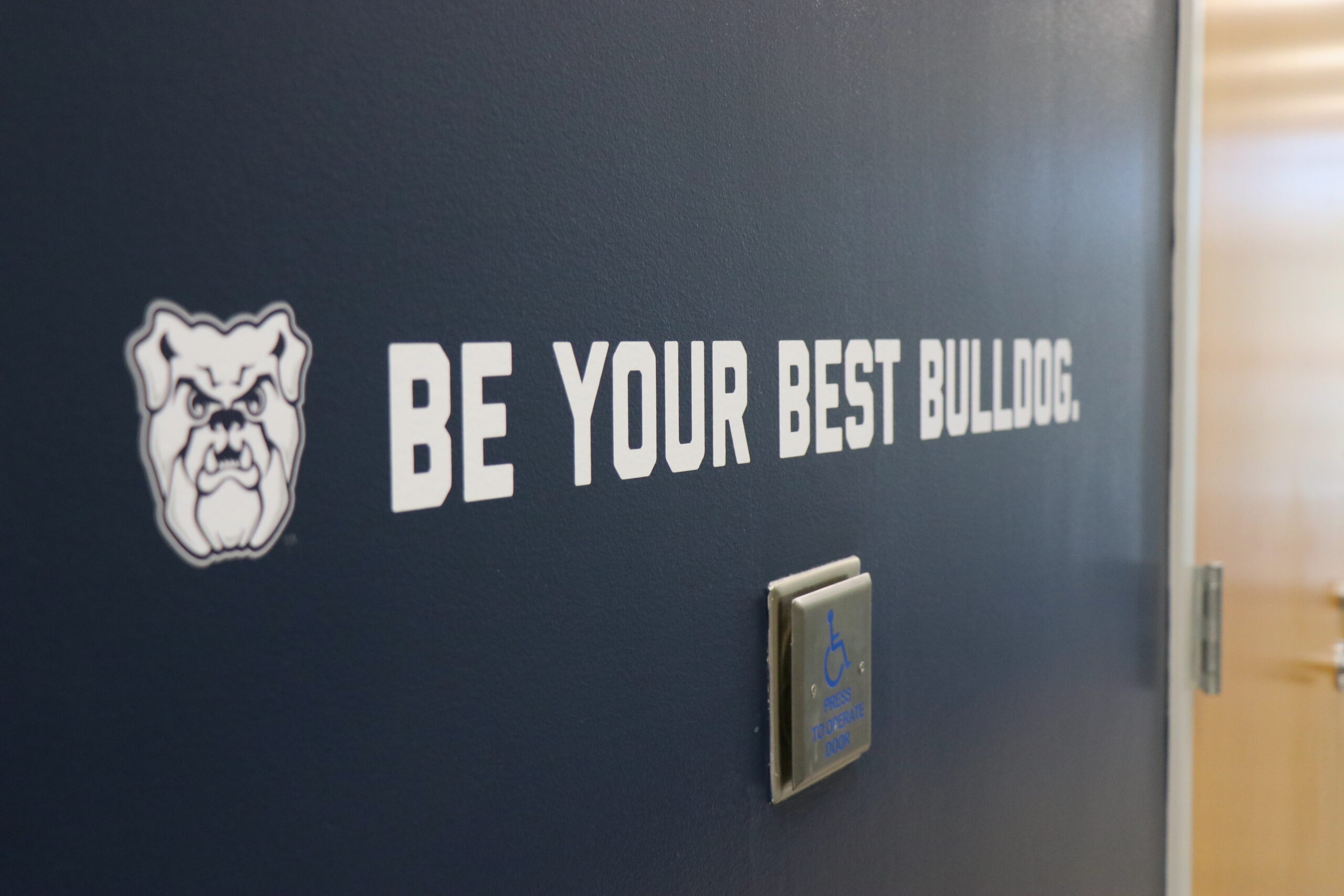CCS provides educational programming for the Butler community. Photo by Grace Hensley.
MAXWELL COLLINS | STAFF REPORTER | mcollins1@butler.edu
Butler’s Counseling and Consultation Services, CCS, provides many educational and training programs for faculty, staff and students — every semester they hold Safe Space training and Campus Connect. Safe Space gives students and staff updated information on how to best be an ally to the LGBTQ+ community. Campus Connect is a suicide prevention program that gives attendees crisis management and prevention training.
Campus Connect was most recently held on September 29 where approximately 15 Butler community members attended.
Safe Space aims to create spaces on campus where LGBTQ+ individuals feel safe, supported and valued as community members. The training goes over topics that people should be sensitive to and hopes to reduce bullying and unintentional biases. Additionally, the program expands the network of allies on campus and builds awareness of issues affecting LGBTQ+ individuals.
CCS assistant director Christine Kiray oversees Butler’s outreach and education programs and finds each of these programs that are held every semester vital to the campus environment.
“Our Safe Space training plays an integral role [at Butler],” Kiray said. “In terms of how we support students within [LGBTQ+] identities, and how we create spaces where [LGBTQ+ students] can feel safe and included on our campus?”
While Butler aims to maintain the entire campus a place accepting and safe for all students, there are some areas that have the main purpose of providing students a space to be authentic.
The Efroymson Diversity Center is located inside Atherton Union and is one of the places on campus where student groups can advocate for and freely represent themselves. The Diversity Center offers gender-neutral restrooms, prayer and meditation spaces and a lounge area for students. Additionally, the Diversity Center gives office spaces to many student organizations, including but not limited to, Black Student Union, Butler Alliance and Gender Equity Movement.
Bee Pilarz, sophomore political science and English double major, is Butler Alliance’s vice president of community outreach. They explained that while keeping the community updated and informed is vital, the line between advocacy and talking over groups of people is a thin line.
“The best way that I would explain it, is that it [can be] very risky,” Pilarz said. “It is tricky to speak on an experience that is not your own … it is entirely different to observe something versus actually live it.”
Kiray said that CCS programs are constantly evolving to try and keep up-to-date with the new information and experiences that are coming out.
“On [CCS’] end, we just revamped our Safe Space training, just to keep it updated,” Kiray said. “As new information comes out, as time goes on, we want to fix things that aren’t necessarily accurate anymore.”
Campus Connect: Suicide Prevention Training has the objective of raising knowledge of suicide warning signs and skills to respond to at-risk students. The program wants to implement the essentials for as many staff and faculty as possible so more people are able to take the correct steps and life-saving actions in a crisis scenario.
Kiray explained further what topics the program covers, specifically at Butler.
“[Campus Connect] is helping folks to understand how they can be supportive of students that are experiencing suicidal ideation or suicidal thoughts and how to support them,” Kiray said. “But especially [how] to recognize the warning signs of suicide.”
The mental health crisis in America is constantly becoming a more pressing issue. Mental Health America reported that 4.58% of adults reported serious thoughts of suicide in 2022 — 664,000 more than last year. Additionally, over 27 million adults in the U.S. suffer from untreated mental illness.
“We are in a mental health crisis in our world and our country,” Kiray said. “Being aware of who might experience suicidal thoughts, knowing how to support folks that are experiencing [suicidal thoughts] is incredibly important and truly life-saving.”
Katherine Johnson, adjunct faculty in communication and media studies, shared that though she is not a licensed mental health official, many university faculty find themselves in positions where they are made aware of students struggling with mental health, and should be there for them in some regard.
Though Johnson has not attended the Campus Connect training, she explained that faculty members are given the resources used in the training and that the CCS website itself is very informative and thorough.
“For faculty, we are supposed to be aware of certain [warning] signs,” Johnson said. “Then at the very least, be open to students coming and talking to us. In a lot of cases, [faculty] are mandatory reporters.”
Multiple aspects of mental health struggles can be attributed to the stress of college life. Mayo Clinic reports that some students may present depression and anxiety through difficulty with schoolwork, loss of interest in activities and changes in eating and sleeping habits.
“Most people who are responsible can understand the stress of academic life,” Johnson said. “I have experienced [academic stress] myself, so just listening to people and being there for people, I think that’s the very least we can do as teachers and faculty.”
Campus groups and individuals interested in attending upcoming Campus Connect or Safe Space trainings can reach out to Christine Kiray at ckiray@butler.edu.



